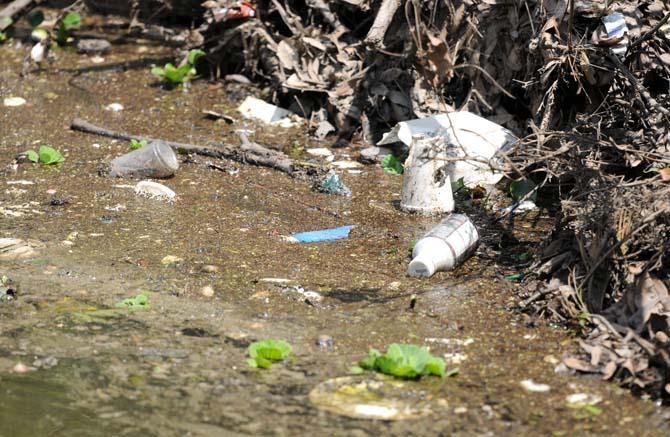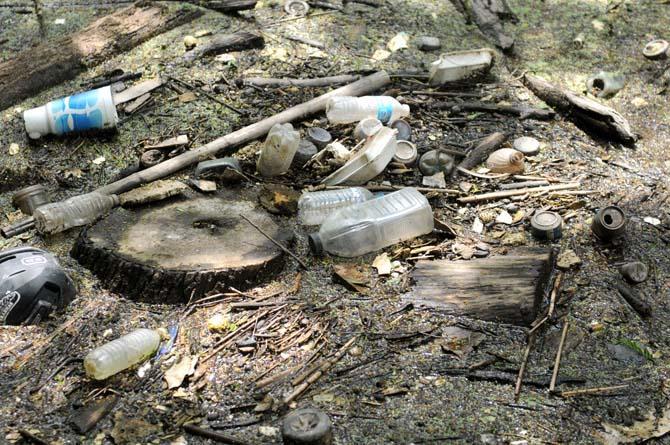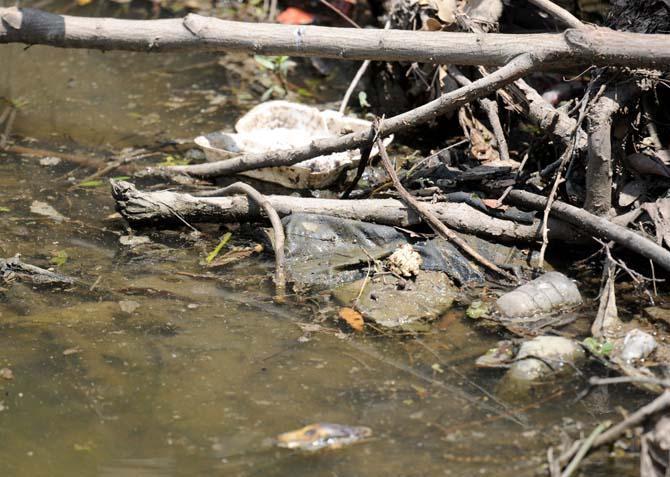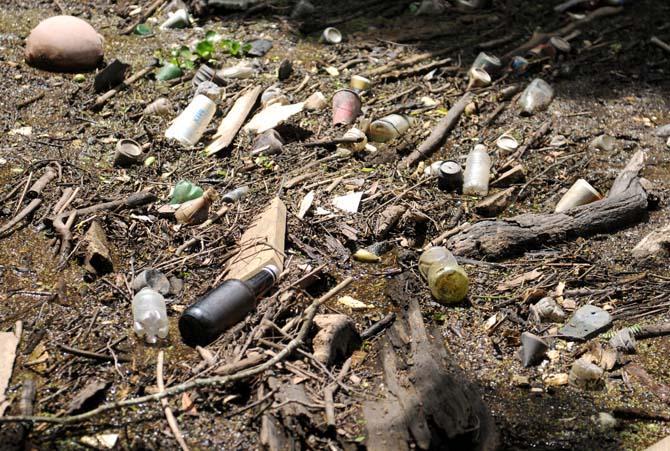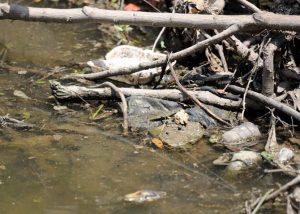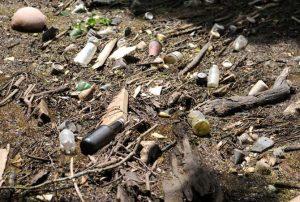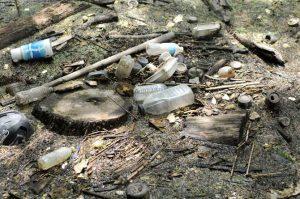Plastic bottles, shopping bags and foam packages are just a few of the items that litter waterways on campus and around Baton Rouge and can often clog drains and float downstream.
Baton Rouge’s waterways weave in and out of developed areas, which enables litter to be easily carried into canals or streams through storm drains or by wind, according to Rebecca Triche, executive director of the Louisiana Wildlife Federation.
“The trash that we’re seeing locally in Baton Rouge or in any of the waterways, it started off in someone’s yard, along a roadway, in a parking lot,” Triche said. “It lands somewhere, and if you don’t put it in a disposal and it goes to a landfill, it’s floated somewhere.”
Baton Rouge Department of Public Works has devices designed to capture trash and prohibit it from floating farther downstream on several waterways around the city, including campus. But University solid waste and recycling manager Andres Harris said trash in waterways on campus needs more attention.
A DPW capturing device in Corporation Canal, located between the University Student Recreational Complex and Miller Hall, is cleaned by city officials once or twice a month, Harris said. However, he said in periods of high water, the debris breaks free and continues to float downstream.
Assistant Director of Facility Services Tammy Millican said the University purchased 1,000 new recycling bins last semester to encourage students to recycle more, while giving them more access to do so. Millican said this can help stop trash at its source so it doesn’t get carried to streams.
A number of waterways stemming from the interior of Baton Rouge flow into Bayou Manchac and past the home of Prairieville resident Jonathan Scott. The trash continues its journey from Bayou Manchac en route to the Gulf of Mexico.
Scott is the president of Bayou Manchac Group, a citizens’ organization founded to conserve and protect the ecological integrity of the bayou as well as its tributaries that sprawl throughout Baton Rouge, he said.
The group seeks to raise awareness about Baton Rouge’s litter problem, Scott said.
“Seeing the trash on the water all the time, it’s a bit depressing – it sort of gets you down,” he said. “You’d expect people would take a little bit more pride in the state as a whole. Not only knowing that people are littering, but also that Louisiana just doesn’t have any programs in place to pick up the litter once it hits the waterways.”
Scott has worked with Triche and the LWF to craft a resolution that will urge state legislators to act on the trash issue.
“In February, Louisiana Wildlife Federation passed a resolution that calls for legislators to consider adding trash to the list of impairments in waterways,” Triche said. “Currently, you have a list that includes sediments and any kind of pollution that enters into a water body or into the stream, but what I think all of us have seen over time is the amount of trash that you see floating in streams, bayous [and]along river beds.”
Triche said the LWF resolution is a way to compel action on the issue, and it will be brought to legislators in the 2014 session. Having trash listed as an impairment to a waterway will be a big step in alleviating the problem, she said.
Bayou Manchac Group is hosting a trash sweep Saturday where volunteers will band together to pick up trash from canoes in Bayou Manchac, Scott said.
Scott encouraged those willing to help to visit the Bayou Manchac Group Facebook page. The group holds trash sweeps to raise awareness about the litter issue, he said.
“If we can get Baton Rouge aware that the majority of this garbage is coming from there, we can get more people interested,” he said. “The more people that are interested the more the parish leaders are interested in doing something about the garbage.”


